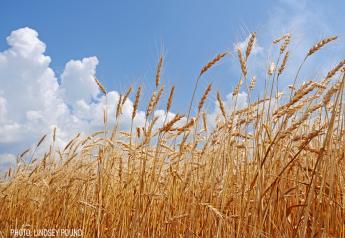COVID-19 Vaccine is a Science-Based Technology Life Saver

By Bill Horan: Rockwell City, Iowa USA
The science of GM technology may save my life.
That’s because I’m about to get my COVID-19 vaccine. I have the fortune of becoming an early recipient, but only because I have the misfortune of belonging to a vulnerable group.
My age and a medical condition mean that my turn comes next month. I have a date, time, and place to show up for a shot.
People around the world are scrambling for access to the vaccine, of course. Most Americans say they want the injections as soon as possible, according to a recent poll in USA Today. This is an improvement from last fall, when respondents expressed more wariness.
This global conversation reminds me of another debate that once dominated my life as a farmer in Iowa: The introduction of crops improved through genetic modification, the dispute over their safety, and their growing acceptance by consumers.
GM technology and the COVID-19 vaccines emerge from the same basket of technologies that have allowed us to glimpse into genomes and adjust them for the benefit of human health.
In the case of GM technology, we’ve created a generation of crops that can fight off weeds and pests like nothing else in the history of agriculture. Food is more abundant and less expensive than ever before. Because we’re growing more food on less land, this technology has been helping us conserve the natural resources while enhancing the soil we share.
The future looks brighter still: With emerging technologies such as CRISPR, we’re going to edit the genes of crops in ways that will make them even better than they already are. We’ll boost nutrition and fight disease. The potential advantages are extraordinary.
For years, however, many people resisted these developments. They were uneasy because the science was new. Critics called for warning labels on food packages. Others wanted to ban crops improved with GM technology entirely.
Over the last two decades, however, crops improved with this innovative technology have become a conventional part of the food chain. Since their commercialization, we’ve confirmed that they’re 100-percent safe. That’s what every peer-reviewed study shows, to say nothing of that fact that billions of people eat food produced from them each day without suffering so much as a single sneeze.
Despite the widespread acceptance of GM technology in the United States and around the world, some European countries still put onerous restrictions on them, to the frustration of the farmers who live there and the consumers who understand the science behind them.
It’s a good thing that few people have applied the illogic of anti-GM technology ideology to the menace COVID-19. Scientists may have been banned or perhaps reluctant to use genetic technologies to develop the vaccines that are now coming to our rescue. Even if they did, many may have refused to let the vaccines enter our bodies. We’d fail to achieve the herd immunity that is the ultimate solution to the pandemic. The coronavirus would continue to ravage the world, with no end in sight.
Just as opposition to vaccines poses a public-health threat, hostility to GM technology and new advancements in gene editing damages food security. In developing countries especially, people suffer when farmers are forbidden from planting the world’s most improved crops that feed people while sustaining the earth we share.
Here in the United States, the culture of innovation and a strong regulatory system means that we can safely use and trust cutting-edge science to improve our food and our medicine.
The rollout of the vaccine has led to frustration, especially at a time when Americans are dying daily and a variant of the coronavirus poses a new threat of faster transmission. My own appointment for a shot was scheduled, then cancelled in confusion, and finally rescheduled.
Despite these aggravations, we should remain grateful. Only about a year ago, “coronavirus” entered the popular vocabulary. Ever since, it has ravaged us with sickness and death, plus a long list of horrible side effects, from economic shutdowns and unemployment to depression and drug abuse.
I am confident we’re about to defeat it.
I’m glad that we’re now debating who should receive the shots and in what order, rather than wondering if we’ll have a vaccine at all.
A solution is upon us—and we owe it all to the sound science, safe technologies, and sensible policies that continue to enhance our lives.
Bill Horan grows corn, soybeans and other grains with his brother on a family farm based in North Central Iowa. Bill volunteers as a board member for the Global Farmer Network. This column originates at www.globalfarmernetwork.org
Follow us on Facebook | @GlobalFarmerNet & @World_Farmers on Twitter | Instagram | LinkedIn







